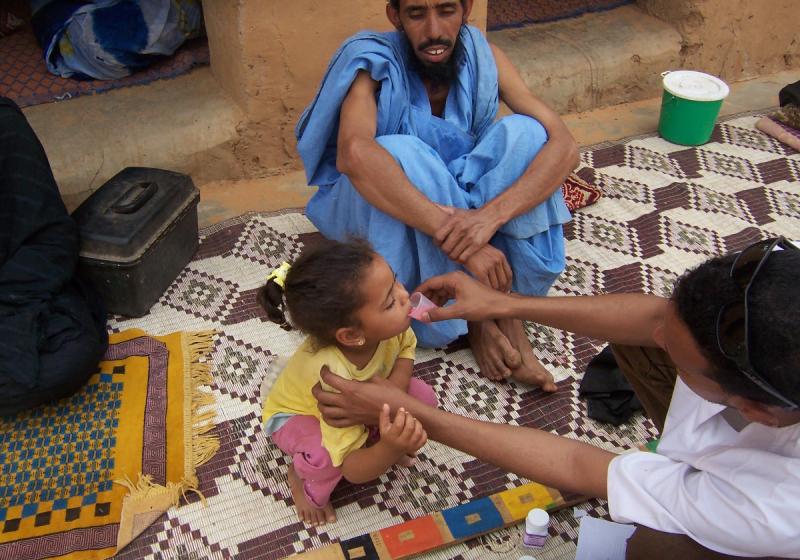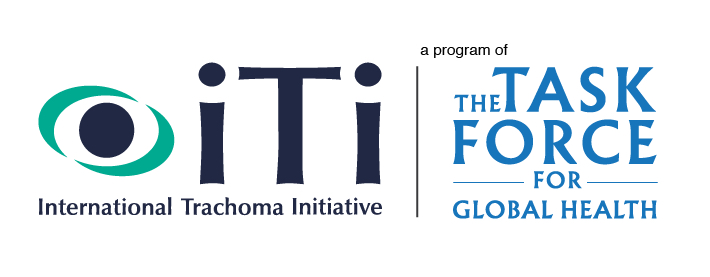
Mauritania Achieves Elimination of Trachoma as a Public Health Problem
The International Trachoma Initiative (ITI) proudly joins global health partners in celebrating a major achievement: Mauritania has officially eliminated trachoma as a public health problem, becoming the 22nd country in the world to reach this milestone as validated by the World Health Organization. At the 78th World Health Assembly in Geneva this week, Mauritania was congratulated by WHO Director-General Dr Tedros Adhanom Ghebreyesus for its achievement, alongside other countries that have reached public health milestones in the last 12 months. Papua New Guinea was amongst this group, having also been validated by WHO as having eliminated trachoma as a public health problem.
This success is the result of over two decades of strategic, multi-sectoral collaboration led by Mauritania’s Ministry of Health and the National Program for Blindness Control (Programme National de Lutte contre la Cécité – PNLC), with support from ITI and global partners.
This announcement highlights Mauritania’s commitment to public health and its leadership in fighting neglected tropical diseases (NTDs).
“This good news has been so eagerly awaited by ourselves and our partners who have stood by us for twenty years of tireless work. Certainly, without the remarkable work of our program team and ITI's provision of sufficient quantities of azithromycin, achieving this goal would perhaps be even more distant. We thank ITI and all our partners for the unforgettable support they have given us throughout this process. Preserving this achievement is the real challenge. ”
Dr. Abdallhi Ould Minnih
Established in 1987, the PNLC was created to address the pressing public health issue of preventable blindness and ocular diseases. A national survey in 2000 revealed 16% prevalence of active trachoma (TF) in children under 10 years and 0.26% prevalence of trachomatous trichiasis (TT) in women over 14 years. Over 1.6 million people in Mauritania — 55% of the population — were living in endemic areas, including 43,800 children with active trachoma and 2,500 women with TT.
To confront this crisis, Mauritania’s Ministry of Health mobilized a nationwide response in 2004 through the implementation of implemented the WHO-endorsed SAFE strategy — Surgery, Antibiotics, Facial cleanliness, and Environmental improvement — in French known as CHANCE:
- Surgery: Certified national teams provided surgical care in even the most remote areas.
- Antibiotics: ITI supported the coordination of nationwide mass drug administration of Pfizer-donated azithromycin, reaching more than 80% coverage of districts.
- Facial Cleanliness: Health education campaigns emphasized hygiene and face-washing.
- Environmental Improvement: Investments in water and sanitation (WASH) infrastructure improved access in high-risk areas.
Key Public Health Impact
- Less than 5% prevalence of active trachoma (TF) in children 1-9 years across all 62 districts (Moughataas).
- Less than 0.2% prevalence of trachomatous trichiasis (TT) among adults 15 and older.
- Over 530,000 individuals were treated with antibiotics for trachoma with over 2.7 million doses of azithromycin, donated by Pfizer, between 2004 and 2018.
- 1,357 individuals received free surgery to prevent blindness from TT.
This achievement was made possible by a cross-sectoral collaboration, with Mauritania’s Ministry of Health leading national coordination across Mauritania’s ministries of Water and Sanitation, Education, Information, and Environment. ITI worked closely with Pfizer Inc. to facilitate its donation of azithromycin. Other partners that supported this incredible work included END Fund, Fondation Bouamatou, Helen Keller International, Lions Club International, Organisation pour la Prévention de la Cécité, Tropical Data, UNICEF, and WHO.
Although trachoma is no longer a public health problem in Mauritania, the country has committed to establishing ongoing post-validation surveillance systems, integrated case detection into primary health services, and continues community awareness campaigns focused on hygiene and eye health.
Mauritania is now among the growing list of countries that have eliminated trachoma as a public health problem. This success offers critical momentum for the final push toward global trachoma elimination by 2030.
About ITI
The International Trachoma Initiative (ITI), a program of The Task Force for Global Health, contributes to efforts to eliminate trachoma through the SAFE strategy and works closely with health ministries, NGOs, and donors. ITI manages the donation of azithromycin from Pfizer Inc. and provides technical and strategic support for trachoma elimination programs around the world.
Website: www.trachoma.org
LinkedIn: International Trachoma Initiative
Instagram: @itiatlanta
Media Contact:
Beja Turner
Email: communications@trachoma.org

